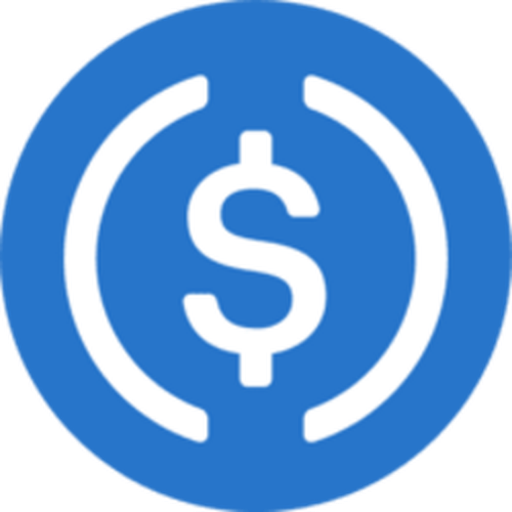USDC vs BOOK OF MEME – Price, Market Cap & Performance Compared
Which coin performs better – USDC or BOOK OF MEME?
We compare the current price (0.99971 $ vs 0.00169 $), market cap (74 153 765 385 vs 116 708 552) and all-time high (1.17 vs 0.02689).
Find out which one stands out right now!
USDC is currently trading at 0.99971 $, while BOOK OF MEME stands at 0.00169 $. These cryptocurrencies differ not only in price but also in market presence.
The market cap of USDC is around 74 153 765 385, and BOOK OF MEME has about 116 708 552. Their respective all-time highs are 1.17 for USDC and 0.02689 for BOOK OF MEME.
Daily trading volume and the 24h price change (-0.00009 % vs -0.75110 %) also offer key insights.
Compare all metrics now and see which coin fits your investment strategy best!
USDC
USD Coin (USDC) is a stablecoin that is pegged to the US dollar, offering a consistent value and reducing the volatility often associated with cryptocurrencies. It provides a crucial bridge between traditional financial systems and digital currency markets, facilitating easy and secure transactions. USDC's foundation on blockchain technology ensures transparency and enhances trust among users and institutions.
more informationBOOK OF MEME
Book of Meme is an innovative cryptocurrency designed to leverage the power of internet culture and community engagement. By focusing on memes, it aims to create a unique economic ecosystem where creativity and humor drive value. The project's community-centric approach encourages participation and collaboration, making it a standout in the crowded crypto landscape.
more information

|

|
|
|
|
General Information |
|
|---|---|
|
Title
USDC
|
Title
BOOK OF MEME
|
|
Symbol
usdc
|
Symbol
bome
|
|
Whitepaper
-
|
Whitepaper
-
|
|
Website
|
Website
-
|
|
Community
-
|
Community
-
|
|
Last Updated
2025-09-24 23:29
|
Last Updated
2025-09-24 23:28
|
Price Data |
|
|---|---|
|
Current Price $
0.99971 $
|
Current Price $
0.00169 $
|
|
High 24h
0.99972 $
|
High 24h
0.00174 $
|
|
Low 24h
0.99960 $
|
Low 24h
0.00166 $
|
|
Price Change 24h
0.00000 $
|
Price Change 24h
-0.00001 $
|
|
Price Change % 24h
-0.00009 %
|
Price Change % 24h
-0.75110 %
|
Market Data |
|
|---|---|
|
Market Cap
74 153 765 385
|
Market Cap
116 708 552
|
|
Total Volume
10 559 655 699
|
Total Volume
28 610 397
|
|
Market Cap Change 24h
159 815 467
|
Market Cap Change 24h
-833 085
|
|
Market Cap Change % 24h
0.21598 %
|
Market Cap Change % 24h
-0.70876 %
|
|
Return on Investment (ROI)
-
|
Return on Investment (ROI)
-
|
Supply and Availability |
|
|---|---|
|
Circulating Supply
74 175 659 818
|
Circulating Supply
68 999 659 569
|
|
Total Supply
74 172 355 958
|
Total Supply
68 999 659 569
|
|
Max Supply
-
|
Max Supply
68 999 659 569
|
Historical Data |
|
|---|---|
|
All Time High (ATH)
1.17
|
All Time High (ATH)
0.02689
|
|
ATH Change %
-14.75232 %
|
ATH Change %
-93.71018 %
|
|
ATH Date
2019-05-08 00:40
|
ATH Date
2024-03-16 13:51
|
|
All Time Low (ATL)
0.87765
|
All Time Low (ATL)
0.00006
|
|
ATL Change %
13.90744 %
|
ATL Change %
2 791.89881 %
|
|
ATL Date
2023-03-11 08:02
|
ATL Date
2024-03-14 10:17
|
USDC
Understanding USDC: A Stablecoin in the Volatile Crypto World
USDC, or USD Coin, is a prominent stablecoin in the cryptocurrency market. Issued by Circle and backed by fully reserved assets, USDC is designed to maintain a 1:1 value ratio with the US Dollar, making it a reliable digital dollar. The stablecoin ecosystem plays a crucial role in the broader cryptocurrency industry by providing a less volatile alternative to traditional cryptocurrencies like Bitcoin and Ethereum.
The Evolution of USDC
Launched in 2018, USDC was developed as part of a collaboration between Circle and Coinbase, two major forces in the cryptocurrency space. Since its inception, USDC has seen significant growth and adoption, becoming one of the leading stablecoins alongside Tether (USDT) and Binance USD (BUSD). While its all-time high reached $1.17 in May 2019, this was more of an anomalous spike that reinforced the need for rigorous controls to maintain stability around its intended $1 peg.
Pros of Using USDC
One of the primary advantages of USDC is its transparency and regulatory compliance. Circle, the company behind USDC, undergoes regular audits and publishes monthly attestations of its reserves, ensuring users that each USDC token is truly backed by a dollar or dollar-equivalent asset held in reserve. This transparency fosters trust and helps mitigate the volatility that plagues much of the crypto market.
Furthermore, USDC serves as a bridge between traditional finance and the blockchain world. It's used widely in Defi applications, allowing decentralized lending, borrowing, and trading while maintaining value stability. Additionally, USDC's integration into various wallets and exchanges worldwide adds to its utility and liquidity.
Cons of USDC
Despite its advantages, USDC is not without its drawbacks. One of the critical concerns involves regulatory risks, as stricter regulations on stablecoins could impact its future operations. Also, as a centralized stablecoin, USDC is subject to censorship concerns, where accounts can be frozen, diverging from the decentralized ethos that underlies most cryptocurrencies.
Another drawback is that, unlike decentralized alternatives, USDC requires a level of trust in the issuer, Circle. Any potential mismanagement or economic instability affecting Circle could, in theory, impact its ability to maintain the 1:1 peg, a risk inherent to any centralized stablecoin.
Past Performance and Market Impact
USDC has generally maintained its peg effectively, with minor fluctuations typically remaining within a tight range around $1. Its stability has been pivotal during periods of crypto market volatility, where it serves as a safe haven for investors looking to escape market downturns without exiting the crypto ecosystem.
In terms of market cap, USDC has experienced exponential growth, driven by increased adoption in the decentralized finance (Defi) space and demand for stable trading pairs. Despite being eclipsed by Tether (USDT) in terms of market share, USDC's reputation for transparency gives it a competitive edge.
Future Outlook for USDC
Looking ahead, USDC's future appears promising but laden with challenges. The growing scrutiny from regulators worldwide could result in regulatory changes impacting its operations. However, Circle's proactive approach to compliance and regulation may shield USDC from adverse outcomes.
The stablecoin's role in facilitating seamless transactions and enabling innovative financial products in the Defi space will likely continue to drive its utility and adoption. Moreover, as traditional financial institutions begin to explore blockchain technology, USDC could play a critical role in bridging the two worlds.
In summary, USDC's stability, transparency, and integration with both traditional and decentralized finance systems position it as a key player in the ongoing evolution of digital finance. However, navigating regulatory landscapes and maintaining trust will be crucial for its sustained success.
BOOK OF MEME
Introduction to BOOK OF MEME (BOME)
BOOK OF MEME (BOME) has become a noteworthy entrant in the crypto space. As a meme-based cryptocurrency, BOME captures the social nature of blockchain with a twist of humor. The coin stands out amongst its peers, carving its niche driven by community and innovation.
A Look into BOME's Historical Performance
The journey of BOOK OF MEME has been quite a rollercoaster ride. The coin reached its all-time high of $0.02688878 on March 16, 2024, following its launch, with early adopters seeing substantial gains. However, like many meme coins, BOME experienced significant volatility, dropping approximately 63% from its ATH.
Interestingly, the coin's all-time low was recorded just two days prior to its ATH on March 14, 2024, which speaks volumes about its rapid rise in popularity and speculative trading behavior. This volatility can be attributed to the speculative nature and community-driven factors that often influence meme coins.
Advantages of Using BOOK OF MEME
One of the main advantages of BOME is its vibrant and engaged community. The coin’s social aspect encourages collaborative efforts, fostering a strong online presence which remains crucial for its growth. This engagement is often reflected in the coin's rapid price surges and adoption among meme enthusiasts.
Furthermore, the complete circulation of its supply contributes to transparency and predictability in inflation, unlike many other coins that still have pending supply releases. This aligns with the cryptocurrency's decentralized ethos.
Disadvantages and Challenges Facing BOME
However, BOOK OF MEME is not without its challenges. The primary disadvantage lies in its high volatility, which poses a risk to investors who might face significant losses during downturns. Moreover, the reliance on meme culture means that changes in social sentiment can dramatically impact its price.
Another concern is the sustainability of its growth. Like many meme coins, if BOME's hype diminishes, its value could significantly drop, making long-term investment risky. The speculative aspect, while a catalyst for rapid gains, also results in equal exposure to steep declines.
Current Standing and Future Outlook
As of the latest update, BOME's price stands at $0.00985791, with a market cap approaching $679 million. It witnessed a 11% increase in the past 24 hours, showcasing its dynamic yet volatile nature.
Looking ahead, the future of BOOK OF MEME largely depends on maintaining community interest and expanding utility beyond being just a meme coin. Strategic partnerships, technological advancements, and real-world applications might propel BOME toward more sustainable growth.
Nonetheless, potential investors should brace for volatility and consider investing based on the coin's inherent community value rather than solely on speculative price increases.
Conclusion
BOOK OF MEME encapsulates the whimsical yet speculative allure of meme cryptocurrencies. While it offers a unique community-oriented approach in the crypto market, prospective investors must remain cautious due to its inherent risks. Its future will largely depend on maintaining relevance within the ever-evolving crypto landscape.

